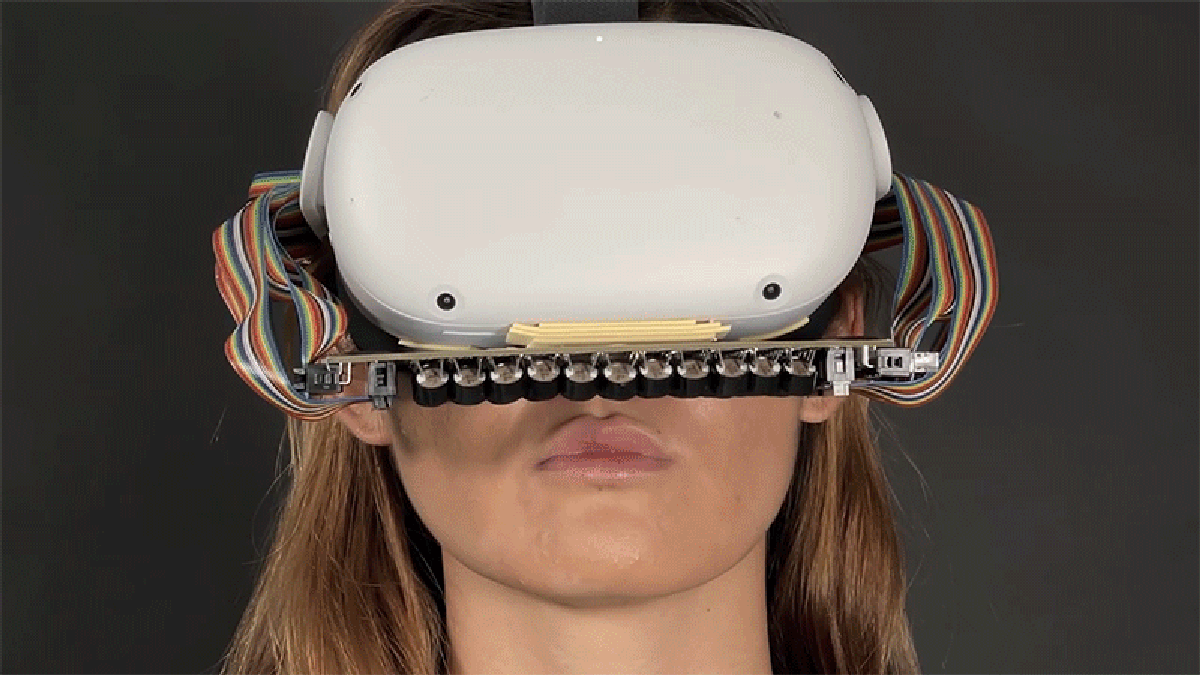In other news today...
-
@Bulb said in In other news today...:
Well, they are. But too much of everything is harmful and that applies to cheese just as to anything else. They are still much better than most of the stuff that got an A.
No they're not. For all its flaws (and I'm not going to defend it a lot!), the nutri-score does very broadly rates high-[sugar OR fat] products lower than low-[sugar AND fat] ones (note the logical qualifiers). If for any reason you're watching your fat intake, (full fat) cheese in large amount is a bad idea. Veggies get a low rating and guess what, they're low in both fat and sugar, and you hardly can eat too much of them.
Yes, artisan cheese will get a worse rating than some highly processed food (which is what is usually implied by "junk food" though of course a can of cassoulet is highly processed but that's not "junk food," it's almost as if that label had no actual proper definition
 ), but really, what else would you expect from something that's 30% fat?
), but really, what else would you expect from something that's 30% fat?So of course cheese gets a bad rating and that's fair. Expecting otherwise was just dumb, regardless of whether the label was pushed by the big industry or not (and I am definitely not saying it wasn't, because it clearly was!). It's probably impossible to make a simple one-scale label for nutrition, but any scale that doesn't rate cheeses as extremely high in fat is just wrong.
-
-
@cvi I do that all the time.
Usually accidentally.
-
@remi said in In other news today...:
The same exists now in France (and it's really the same, down to the look of it, which probably means it's a EU thing
Well great, that means the chances of this ever getting fixed are basically zero.
@Bulb said in In other news today...:
@remi said in In other news today...:
anything the EU does is Bad
There may be a thing or two that isn't, but their bad-to-good things ratio is definitely very poor.
Just for comparison, labels required to tell you electronics’ energy efficiency are a perfectly fine idea. (Modulo them not saying the year (or version number as we’d call it) of the scale, as that obviously changes over time)
Or required minimum warranties, or telling the mobile phone carriers to get their shit together, or things like that.
-
@remi said in In other news today...:
If for any reason you're watching your fat intake, (full fat) cheese in large amount is a bad idea.
- That's a big IF. Most people shouldn't need to watch their fat intake.
- The “large amount” is the key here. It is all about amount. For the same calories – and you need certain amount of calories to feel satiated – full-fat cheese is better than the low-fat substitutes.
-
@Zecc said in In other news today...:
Update: I've skimmed through the article and nothing really caught my attention.
It didn't seem to be worth my time, so I just closed the tab.
Such are the wages of reading TFA.
-
@Bulb said in In other news today...:
@remi said in In other news today...:
If for any reason you're watching your fat intake, (full fat) cheese in large amount is a bad idea.
- That's a big IF. Most people shouldn't need to watch their fat intake.
- The “large amount” is the key here. It is all about amount. For the same calories – and you need certain amount of calories to feel satiated – full-fat cheese is better than the low-fat substitutes.
Yeah but all that applies more or less to any nutritional info. If you're Michael Phelps, you can eat 10 pizzas a day, or gulp down litres of sugary soda, and still look like the great athlete you are. So really your argument is just "the info on the label isn't relevant for absolutely everyone." Well, duh, no one (and certainly not me) said it was.
I still maintain that any scale that gives full fat cheese a good score is either useless, or doesn't care about fat at all. And conversely, anyone who thinks a scale that takes fat into account is a good idea, and then acts surprised when cheese gets a bad rating on that scale, is a complete moron.
-
Article @BernieTheBernie linked said in In other news today...:
The next version will be a little more NSFW, the researchers hope.We’ve seen ultrasonic transducers used to levitate and move around tiny particles by blasting them with powerful sound waves before, but in this application, they create the feeling of touch on the user’s lips, teeth, and even their tongue while their mouth is open.
I'm sure people are creative enough with what is currently here...
-
And now come the highest jumps:
-
@Tsaukpaetra ...
@boomzilla please Jeff above to Emergency Sad Things Thread.
-


Who needs better pay when they can get "spend your life at our campus" perks.
-
@BernieTheBernie said in In other news today...:
The next version will be a little more NSFW, the researchers hope.moves the "The future is Demolition Man" slider up another notch
-
@topspin said in In other news today...:
Who needs better pay when they can get "spend your life at our campus" perks.
Google is kind of known for that, anyway. There's something of a tradition of saving high Silly Valley rent by living in an RV in the parking lot. Which Google has tolerated, if not cultivated, because 24/7 employees.
-
@HardwareGeek said in In other news today...:
@topspin said in In other news today...:
Who needs better pay when they can get "spend your life at our campus" perks.
Google is kind of known for that, anyway. There's something of a tradition of saving high Silly Valley rent by living in an RV in the parking lot. Which Google has tolerated, if not cultivated, because 24/7 employees.
I mean, that almost makes sense if you’re still young enough. Spend your years from 20-30 working at Google for stupid high salaries that get eaten up by stupid high cost of living, but instead live in the RV. Then at 30, move to a normal place and retire on the savings for not paying the $3000 a month rent for a cupboard under the stairs.
-
@topspin said in In other news today...:
@HardwareGeek said in In other news today...:
@topspin said in In other news today...:
Who needs better pay when they can get "spend your life at our campus" perks.
Google is kind of known for that, anyway. There's something of a tradition of saving high Silly Valley rent by living in an RV in the parking lot. Which Google has tolerated, if not cultivated, because 24/7 employees.
I mean, that almost makes sense if you’re still young enough. Spend your years from 20-30 working at Google for stupid high salaries that get eaten up by stupid high cost of living, but instead live in the RV. Then at 30, move to a normal place and retire on the savings for not paying the $3000 a month rent for a cupboard under the stairs.
You honestly think they'll actually save it?

-
@topspin said in In other news today...:


Who needs better pay when they can get "spend your life at our campus" perks.
I know one Lizzo song and I like it.
-
No or Poe or whatever. Is the meme become reality?
-
@topspin said in In other news today...:
@HardwareGeek said in In other news today...:
@topspin said in In other news today...:
Who needs better pay when they can get "spend your life at our campus" perks.
Google is kind of known for that, anyway. There's something of a tradition of saving high Silly Valley rent by living in an RV in the parking lot. Which Google has tolerated, if not cultivated, because 24/7 employees.
I mean, that almost makes sense if you’re still young enough. Spend your years from 20-30 working at Google for stupid high salaries that get eaten up by stupid high cost of living, but instead live in the RV. Then at 30, move to a normal place and retire on the savings for not paying the $3000 a month rent for a cupboard under the stairs.
If they have $3000 to spend on that. I seem to remember an article about some girl not being able to make ends meet even though she got free food from Google (and it was all she ever ate), and shared her cupboard room with another girl.
Plus, if you don't live on Google's parking lot, you'd need bus fare too.
Why places like Google don't just build employee dormitories over/under their parking lots is beyond me.
-
@Tsaukpaetra Seems legit. There's a need to keep records. Like, one industrial use-case for burnable CD/DVD/BD disks was for business records that need to be kept 7/10/20 years.
I'm actually a bit confused by this part:
Verbatim says it uses high-quality industrial Flash NAND, which has passed strict selection standards. The NAND is good for ten years or more when stored in environments at 55 Celsius or less. Other than this single hardware consideration, the rest of the special sauce that makes this a write-once long-life SSD relies on the Verbatim software.
Why use NAND flash? The user supposedly never needs to erase it. Wouldn't EPROM or something be more reliable?
-
@Tsaukpaetra said in In other news today...:
No or Poe or whatever. Is the meme become reality?
Years ago I read a funny joke announcement about the fabulous new WORN media, but I can't find it now. :(
Anywho, is it cheaper than an external Blu-ray burner? Plenty of GBs available on those.
-
@acrow said in In other news today...:
Why places like Google don't just build employee dormitories over/under their parking lots is beyond me.
Even Google have trouble fighting the local NIMBY crowd. You know, one of the main reasons that there is a catastrophically bad housing crisis in that part of California in the first place.
-
@acrow said in In other news today...:
Why places like Google don't just build employee dormitories over/under their parking lots is beyond me.
I think over here this would run afoul of zoning laws specifically intended to prevent employers from locking their employees into closed factory campuses; bad memories from industrialization times tend to linger it seems.
-
@acrow said in In other news today...:
Why use NAND flash? The user supposedly never needs to erase it. Wouldn't EPROM or something be more reliable?
AFAIK EPROM is way slower to write than NAND flash.
-
@ixvedeusi The process can be parallelled for better speed. And if we're talking of storing e.g. financial records, writing speed isn't all that important. The main point was that in those use cases we can use memory that never needs to be erased. And it would actually be beneficial if the media couldn't be erased.
So, actually, I had one too many 'E's there; it should have been PROM. And we do still have PROM chips in active use, though not usually the size needed for mass storage media.
-
@acrow said in In other news today...:
writing speed isn't all that important
I think we're talking several orders of magnitude here, like a factor of 1000 or so. Wikipedia(1) says an EEPROM write takes 0.1-5 ms. For applications like backups I would think that would become a problem. Another important point might be density; I think EEPROM takes more space in and of itself, and I doubt anyone produces very high-density EEPROMs because there currently isn't a market for that.
I've never encountered a "plain" PROM but yeah (E)EPROMs are still in active use; but as you say they're usually much smaller, probably for exactly these reasons: To my knowledge they are used primarily when "dirt cheap per unit" is the one most important criterion and both write speed and density are irrelevant, because there's not that much to put on there anyway.
(1) also note that that Wikipedia page actually lists FLASH memory as a type of EEPROM, optimized for high speed and density...
-
@ixvedeusi said in In other news today...:
I've never encountered a "plain" PROM
https://www.digikey.fi/fi/products/detail/microchip-technology/AT27C080-90JC/304739
https://www.digikey.fi/fi/products/detail/fairchild-semiconductor/FM27C040V150/12134284
Now you have. Also note that it's listed as "EPROM - OTP".To my knowledge they are used primarily when "dirt cheap per unit" is the one most important criterion and both write speed and density are irrelevant, because there's not that much to put on there anyway.
I think FLASH, as a technology, is cheaper than EEPROM. In my job I see physical EEPROM used in places where emulating the same in FLASH with the software is either impossible to do in the constraints of the program memory, or undesirable for the added complexity it brings. (Software graded for security or reliability should be as simple as possible.) Anything that has kilobytes of RAM to spare and no safety concerns will use FLASH instead.
And even then I'm never certain if the EEPROM is really EEPROM or just hardware-emulating it in FLASH. Because that's still cheaper.
But this is discussing current usage. All of these memory types are transistors on silicon. If writable blu-ray disks fade into history (or become irrelevant capacity-wise), I'm sure that someone will start making one-time writable silicon mass memory.
Edit:
The first linked chip had been obsoleted. Changed the link to point one still actively manufactured.
-
@acrow I think, unless you're making a truly enormous number of units, nobody really makes true ROMs these days. It's so much easier to make EPROMs or FLASH (depending on the number of times you want to write to it) as you don't need to commit to the firmware so early in the manufacturing cycle.
-
@dkf Sure. But we weren't talking of ROMs. Just PROMs. Which can be programmed once.
-
@acrow EPROMs are a kind of PROM, and I bet they're the only kind of PROM you see in the wild now. I guess you could program a PROM with a laser or something instead, but that sounds difficult when you've got all that nice addressing circuitry right there...
-
@dkf Laser-programming would still produce a ROM.
A PROM is by definition something that you can write after manufacturing. The main difference to EPROM would be the lack of erase-function, by design.Which, as stated, has specialty uses.
-
FWIW, we went with using a ROM (on the ASIC) to contain the basic boot code for our current hardware. And of course we managed to fuck it up. It works... but it is the only code in our entire system that uses fucking big endian for data, and byteswaps the data that it writes out in preparation for the next stage boot. So our control software also has to byteswap the OS image that it sends when booting.

The next generation of hardware uses FLASH for booting. It'll mean we can bring up the (micro)OS properly before touching the network.
-
@acrow said in In other news today...:
Laser-programming would still produce a ROM. A PROM is by definition something that you can write after manufacturing.
CD-R / DVD-R / BD-R?
I think there were even more high-density follow ups to that.
Not that common anymore, though.
-
@dkf No-one uses ROMs for software anymore, for that very reason. I'm well aware.
The only place where I encounter a true ROM anymore in the wild is cheap musical circuits. Like greeting cards, or those baby sleeping light/toy/music apparatuses for hanging on a cradle. They store the tune on a ROM.
But this whole discussion started from a write-once disk drive.
@cvi said in In other news today...:
Not that common anymore, though.
Hence the Write-Once USB drive of the TFA.
-
@acrow said in In other news today...:
@dkf Laser-programming would still produce a ROM.
A PROM is by definition something that you can write after manufacturing. The main difference to EPROM would be the lack of erase-function, by design.Which, as stated, has specialty uses.
I have also heard distinction between EPROM and EEPROM. Both are erasable, but in the case of the former you would have to unseat the chip and apply either light or heat. I forget which.
-
@ixvedeusi Also, Google's main campus is in an area that somewhat isolated from the rest of the city — limited access routes (which is why the traffic in and out is so bad), few restaurants, no grocery stores, few or no medical services, etc. — so not a great area to live in.
-
-
@dkf said in In other news today...:
@acrow I think, unless you're making a truly enormous number of units, nobody really makes true ROMs these days. It's so much easier to make EPROMs or FLASH (depending on the number of times you want to write to it) as you don't need to commit to the firmware so early in the manufacturing cycle.
At least some microcontrollers have some of their boot code in ROM, some of the basic subroutines used for accessing FLASH.
-
@PleegWat said in In other news today...:
@acrow said in In other news today...:
@dkf Laser-programming would still produce a ROM.
A PROM is by definition something that you can write after manufacturing. The main difference to EPROM would be the lack of erase-function, by design.Which, as stated, has specialty uses.
I have also heard distinction between EPROM and EEPROM. Both are erasable, but in the case of the former you would have to unseat the chip and apply either light or heat. I forget which.
UV light. I've done that. But not for a few decades.
 It's been so long since I used one that I don't remember how long it takes, but it's on the order of a few minutes. It's also all-or-nothing; you can't erase just the data you want to change.
It's been so long since I used one that I don't remember how long it takes, but it's on the order of a few minutes. It's also all-or-nothing; you can't erase just the data you want to change.
-
@Zecc said in In other news today...:
@topspin said in In other news today...:


Who needs better pay when they can get "spend your life at our campus" perks.
I know one Lizzo song and I like it.
Well... That made me want to stab my ears out.
-
@PleegWat said in In other news today...:
@acrow said in In other news today...:
@dkf Laser-programming would still produce a ROM.
A PROM is by definition something that you can write after manufacturing. The main difference to EPROM would be the lack of erase-function, by design.Which, as stated, has specialty uses.
I have also heard distinction between EPROM and EEPROM. Both are erasable, but in the case of the former you would have to unseat the chip and apply either light or heat. I forget which.
UV light. And you don't need to unseat the chip. But at the time they were in widespread use, sufficiently strong LEDs hadn't been invented yet, so your choices for UV light were rather more bulb-shaped, so they usually had a dedicated "erasing box".
-
@HardwareGeek said in In other news today...:
@dkf said in In other news today...:
@acrow I think, unless you're making a truly enormous number of units, nobody really makes true ROMs these days. It's so much easier to make EPROMs or FLASH (depending on the number of times you want to write to it) as you don't need to commit to the firmware so early in the manufacturing cycle.
At least some microcontrollers have some of their boot code in ROM, some of the basic subroutines used for accessing FLASH.
Modern microcontrollers typically execute directly from FLASH, so access is by necessity handled by the hardware. Some MCUs do also attempt to emulate EEPROM by ROM "microcode". Though bungled implementations abound, in at least in NXP's MK64F series. Which is another example of why you shouldn't bother.
-
50 grams dried... where do you even find that?
-
@acrow said in In other news today...:
@HardwareGeek said in In other news today...:
@dkf said in In other news today...:
@acrow I think, unless you're making a truly enormous number of units, nobody really makes true ROMs these days. It's so much easier to make EPROMs or FLASH (depending on the number of times you want to write to it) as you don't need to commit to the firmware so early in the manufacturing cycle.
At least some microcontrollers have some of their boot code in ROM, some of the basic subroutines used for accessing FLASH.
Modern microcontrollers typically execute directly from FLASH, so access is by necessity handled by the hardware. Some MCUs do also attempt to emulate EEPROM by ROM "microcode". Though bungled implementations abound, in at least in NXP's MK64F series. Which is another example of why you shouldn't bother.
On a shelf in my dad's workshop, there was a box marked PROM BURNER, which did not contain a Carrie. Nearby, there was a fenced yard with transformers, which it similarly turned out were not hiding among the electrical equipment.
-
@acrow said in In other news today...:
And you don't need to unseat the chip.
To erase, no, but generally you needed to remove the chip and put it in a programmer to write the data after you erased it. The programming circuitry could, in theory, be included in the device that used the EPROM, but (almost?) never was. Programming the EPROM was not normally a function expected of the $whatever that used it.
-
@HardwareGeek said in In other news today...:
Programming the EPROM was not normally a function expected of the $whatever that used it.
Yeah it really wants that further
Eto make that a sane thing to do.
-
@acrow said in In other news today...:
Modern microcontrollers typically execute directly from FLASH, so access is by necessity handled by the hardware.
 They typically cache the data from FLASH, because reading FLASH is slow (and writing it much more so), and execute the cached instructions/data.
They typically cache the data from FLASH, because reading FLASH is slow (and writing it much more so), and execute the cached instructions/data.At least one family of microcontrollers I worked on had a dedicated, simple, 8-bit CPU whose sole purpose was handling FLASH access for the main CPU. Its code was in ROM, although it had a provision for getting code, or at least timing parameters, from a special, hidden section of FLASH if the ROM code didn't work reliably.
-
@HardwareGeek said in In other news today...:
 They typically cache the data from FLASH, because reading FLASH is slow (and writing it much more so), and execute the cached instructions/data.
They typically cache the data from FLASH, because reading FLASH is slow (and writing it much more so), and execute the cached instructions/data.
 If "typical" is defined as "most common way by numbers sold", then no, 8bit MCUs under 20MHz do not generally need a cache. They're too slow to need it.
If "typical" is defined as "most common way by numbers sold", then no, 8bit MCUs under 20MHz do not generally need a cache. They're too slow to need it.
-
@topspin said in In other news today...:


Who needs better pay when they can get "spend your life at our campus" perks.
I know who Lizzo is and I would probably skip it to do work.
-
https://www.xda-developers.com/amazons-kindle-epub-files/
will finally support the ePub file format for bookss

At the same time, though, Amazon is also disabling support for the MOBI file format

-
The never ending news stream from Department of Doom and Gloom presents an H5N1 flu virus among birds in North America:
https://www.science.org/doi/epdf/10.1126/science.abq7228
(not sure if paywalled or freely accessible)

 VR Researchers Have Basically Figured Out How to Simulate the Feel of Kisses
VR Researchers Have Basically Figured Out How to Simulate the Feel of Kisses




